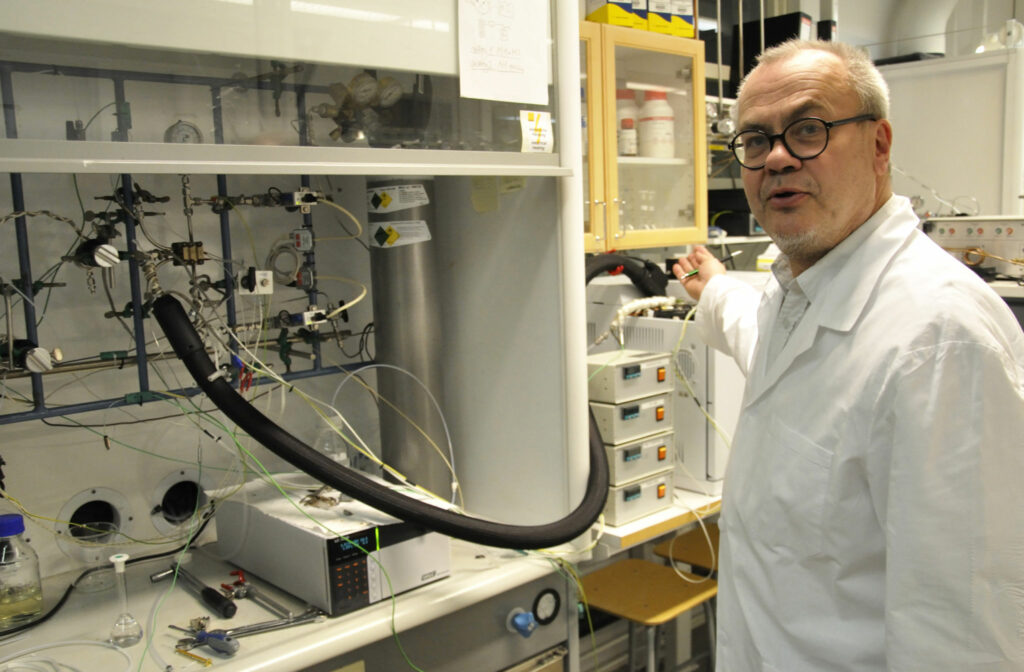23.5.2018
 Tapio Salmi new Academy Professor
Tapio Salmi new Academy Professor
The Academy of Finland today decided on funding for ten new posts as Academy Professor for the period 1.1.2019–31.12.2023.
The Academy received a total of 193 Academy Professor applications, of which 33 were selected to the second stage. The selections were made based on the results of peer review reports from four discipline-specific panels. The reviewers found the applicants to be researchers of a very high scientific quality and with excellent networks. The final funding decisions were made by the Academy’s General Subcommittee based on the panel review reports.
Academy Professors are internationally leading-edge researchers and recognised experts in their field who are expected to have great scientific impact in the scientific community and in society at large. Academy Professors are also expected to significantly advance research in their field and to develop creative research environments.
The new Academy Professors are Lauri Aaltonen (University of Helsinki), Anne Haila (–31.12.2022, University of Helsinki), Pekka Lappalainen (University of Helsinki), Matti Lassas (University of Helsinki), Peter Liljeroth (Aalto University), Johanna Mappes (University of Jyväskylä), Anssi Peräkylä (University of Helsinki), Olli Raitakari (University of Turku), Kari Rummukainen (University of Helsinki) and Tapio Salmi (Åbo Akademi University).
The Academy Professors represent the following disciplines: cancer genetics, social sciences, cellular and molecular biology, applied mathematics, condensed matter physics, evolutionary biology, epidemiology, theoretical physics and chemical reaction engineering.
Lauri Aaltonen aims to bring genomic medicine into practice and improve cancer prevention, diagnostics and treatment by creating and analysing new key datasets from highly selected patient populations – such as those displaying familial aggregation of cancer or similar environmental exposure histories – identified using unique Finnish registries.
Anne Haila explores new solutions to resolve urban problems: producing affordable housing, fighting against land speculation, regulating the real estate market and managing public land.
Pekka Lappalainen will apply a combination of structural biology, biochemistry and cell biology approaches to uncover the molecular principles by which two central actin-binding proteins accelerate actin filament disassembly and actin recycling in cells.
Matti Lassas studies inverse problems, a research field where the goal is to recover information from indirect and noisy observations. The intended application areas of inverse problems research include the identification of different types of stroke and the mapping of subterranean natural resources.
Peter Liljeroth studies artificial designer materials created either atom-by-atom with advanced microscopic techniques or through molecular self-assembly. The target is to create materials with engineered electronic properties.
Johanna Mappes explores animal signalling and communication, such as the capacity of organisms to rapidly evolve in the face of environmental change, the evolutionary impacts of predator loss on prey populations, the maintenance of phenotypic variation, and the role of communication in speciation.
Anssi Peräkylä aims to find out how the narcissistic problems of people who interact with other people, problems such as self-images that alternate between vulnerability and grandiosity, shape interpersonal interactions.
Olli Raitakari will test whether ancestral exposure may cause intergenerational effects on obesity-related phenotypes, cognitive function and psychological wellbeing. The studied exposures are tobacco smoke, persistent organic pollutants and accumulation of psychosocial adversities.
Kari Rummukainen studies gravitational waves that formed when two black holes collided. The research will contribute to making quantitative predictions for the LISA satellite constellation, which has been planned for launch in 2034 and designed to detect and measure gravitational waves.
Tapio Salmi’s research theme concerns the development of wood-derived raw materials to replace oil-based fuels. His research questions focus on the modelling and optimisation of chemical reactions, in particular catalytic reactions.
